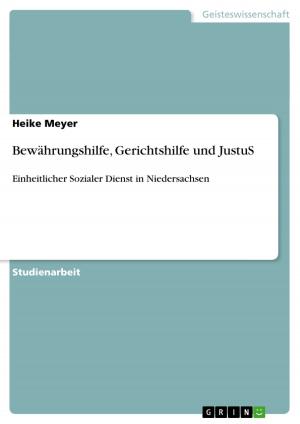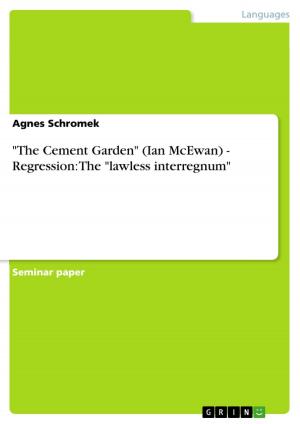Manifestations of politeness in Shakespeare's dramatic works
Nonfiction, Entertainment, Drama, Anthologies| Author: | Martin Holz | ISBN: | 9783640153213 |
| Publisher: | GRIN Publishing | Publication: | September 2, 2008 |
| Imprint: | GRIN Publishing | Language: | English |
| Author: | Martin Holz |
| ISBN: | 9783640153213 |
| Publisher: | GRIN Publishing |
| Publication: | September 2, 2008 |
| Imprint: | GRIN Publishing |
| Language: | English |
Seminar paper from the year 1999 in the subject English Language and Literature Studies - Linguistics, grade: 2,0, University of Cologne, course: Functions in English grammar, 29 entries in the bibliography, language: English, abstract: As well as being an important social and cultural phenomenon, politeness may also be regarded as a function of speech, i.e. a set of principles, rules or maxims governing a competent speaker's use of language. Although this is clearly manifested in the structure and actual use of utterances in a given conversation context, far mote than Saussure's langue and parole arc involved in that historical, sociological and psychological aspects have to be taken into account. Thus, in analysing politeness in a fictional text it is essential to establish the historical setting as well as to examine the social hierarchy and valid conventions; as far as psychology is concerned, a scrutiny of the characters is necessary. Moreover, the course their interaction takes is crucial: 'Every choice A makes affects the force of B's options, and vice versa, so even politeness is determined jointly' (Clark 1996: 316). These methodological premises imply that, even though the emphasis in this paper is on linguistic results, external factors cannot be ignored without distorting the outcome. However, it seems legitimate to integrate these factors only to the degree to which they contribute to the linguistic enterprise undertaken here. As to the theories of politeness that are utilized, it must be noted that they all fall short of explaining the evidence satisfactorily, but they nevertheless allow for interesting inferences and are therefore useful heuristic tools. 1 [...]
Seminar paper from the year 1999 in the subject English Language and Literature Studies - Linguistics, grade: 2,0, University of Cologne, course: Functions in English grammar, 29 entries in the bibliography, language: English, abstract: As well as being an important social and cultural phenomenon, politeness may also be regarded as a function of speech, i.e. a set of principles, rules or maxims governing a competent speaker's use of language. Although this is clearly manifested in the structure and actual use of utterances in a given conversation context, far mote than Saussure's langue and parole arc involved in that historical, sociological and psychological aspects have to be taken into account. Thus, in analysing politeness in a fictional text it is essential to establish the historical setting as well as to examine the social hierarchy and valid conventions; as far as psychology is concerned, a scrutiny of the characters is necessary. Moreover, the course their interaction takes is crucial: 'Every choice A makes affects the force of B's options, and vice versa, so even politeness is determined jointly' (Clark 1996: 316). These methodological premises imply that, even though the emphasis in this paper is on linguistic results, external factors cannot be ignored without distorting the outcome. However, it seems legitimate to integrate these factors only to the degree to which they contribute to the linguistic enterprise undertaken here. As to the theories of politeness that are utilized, it must be noted that they all fall short of explaining the evidence satisfactorily, but they nevertheless allow for interesting inferences and are therefore useful heuristic tools. 1 [...]















